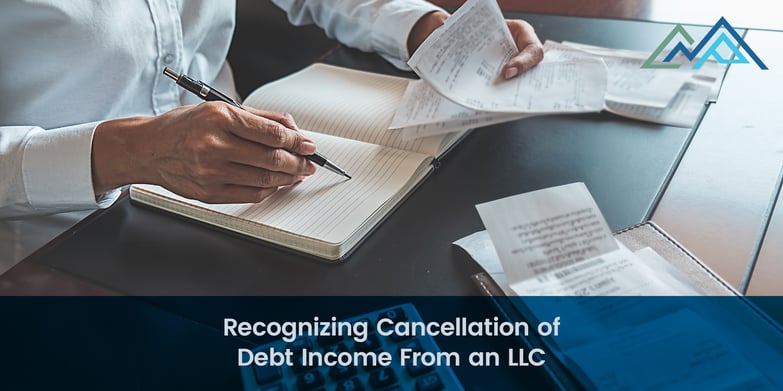More and more frequently, people are hearing about the cancellation or forgiveness of debt for individuals and LLCs. The reduction of debt is most often considered a welcomed relief, but there are some tax consequences that are often overlooked and if not considered, could increase one’s tax liability.

When debt is forgiven or canceled, the debtor usually includes that amount of debt in taxable income. This income is called cancellation of debt (or COD) income and is reported on a 1099-C. If the debtor is an LLC, the COD income is included at the LLC level and assigned to the LLC’s members based on the individual member’s ownership. The members receive their allocated COD income on their individual K-1 in the tax year the LLC was relieved of debt. Each member can then determine if they qualify under a statutory exclusion to eliminate the allocated COD income from their taxable income.
Below are exceptions to the obligation to recognize cancellation of debt as income that may be available to debtors.
- The debtor is insolvent
- The debt discharged was qualified farm debt
- The debt discharged is qualified real property business debt of an electing taxpayer.
- A qualified purchase price reduction is given by the seller
- Debt canceled in a Title 11 bankruptcy case
- The debt is nonrecourse debt (For nonrecourse debt, there is generally no ordinary income from cancellation.)
A key concept to understand is that when an LLC member excludes COD income under one of the above-listed provisions, they must reduce their tax basis in their LLC interest by the amount excluded. This basis reduction is reported on Form 982, Reduction of Tax Attributes Due to Discharge of Indebtedness. If the excluded COD income is greater than the member’s basis in the LLC, the excess amount essentially disappears for tax purposes.
If your LLC has received debt forgiveness or you foresee cancellation of debt, don't hesitate to get in touch with your accountant at CMP to advise you on the tax ramifications of your individual situation.
















